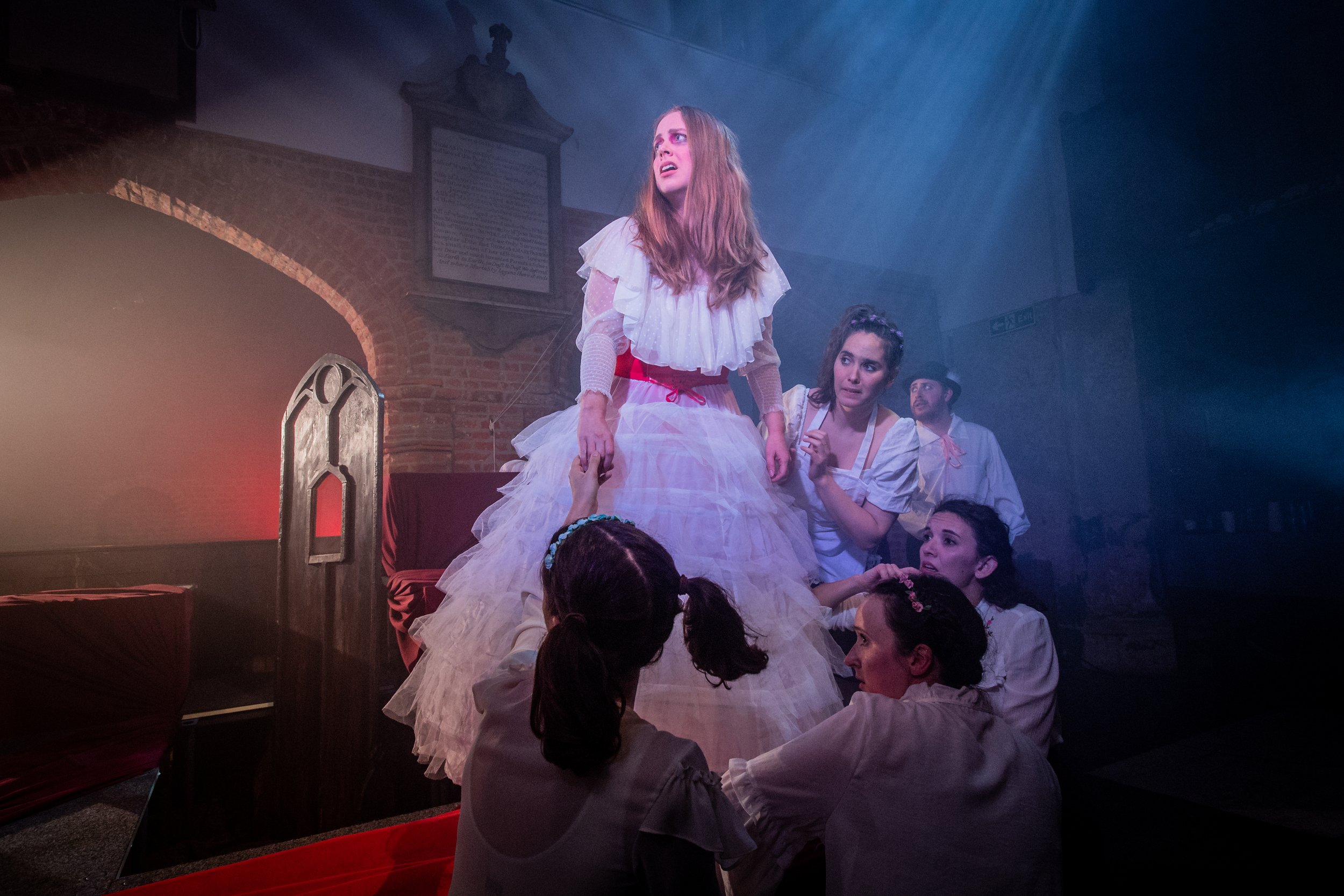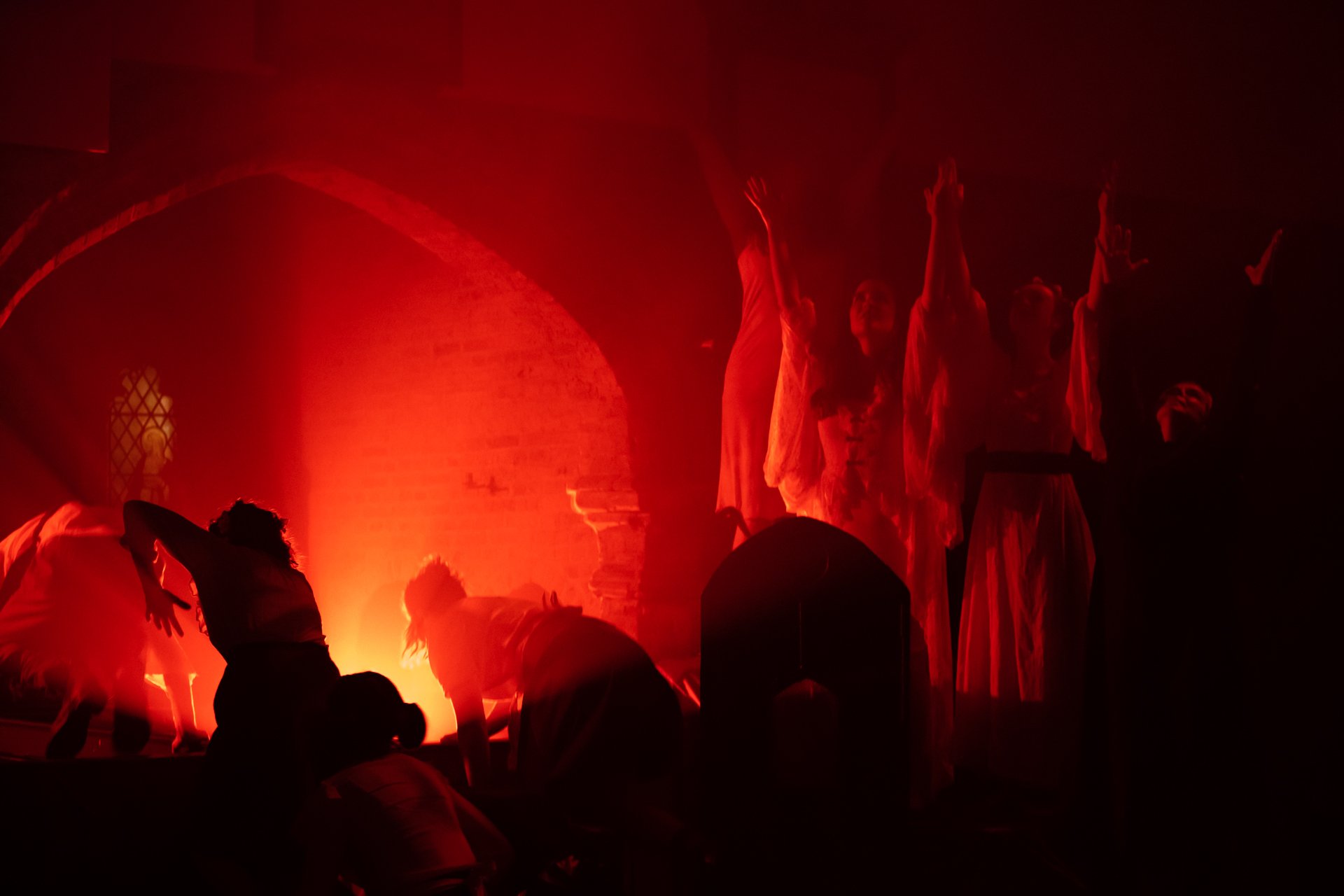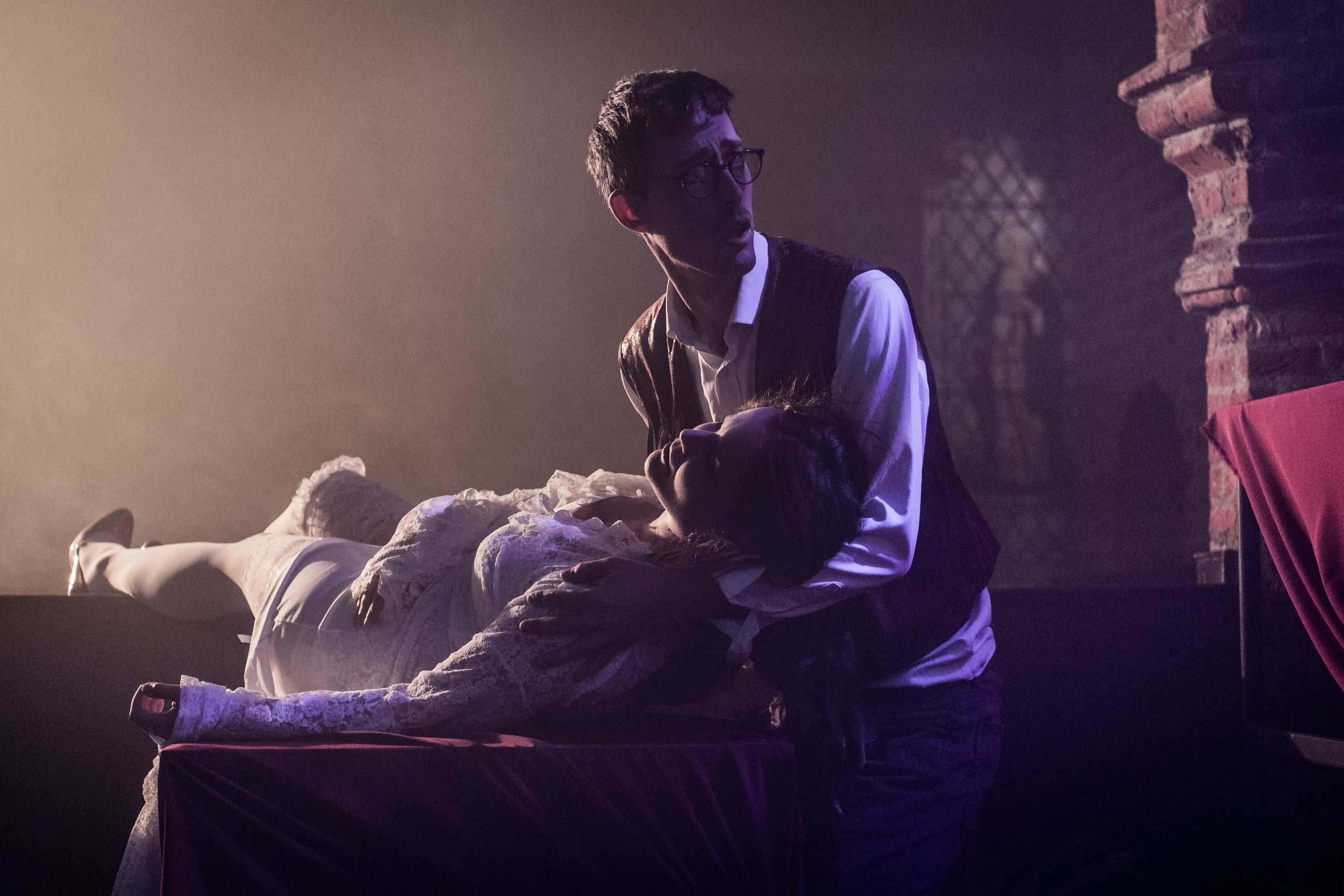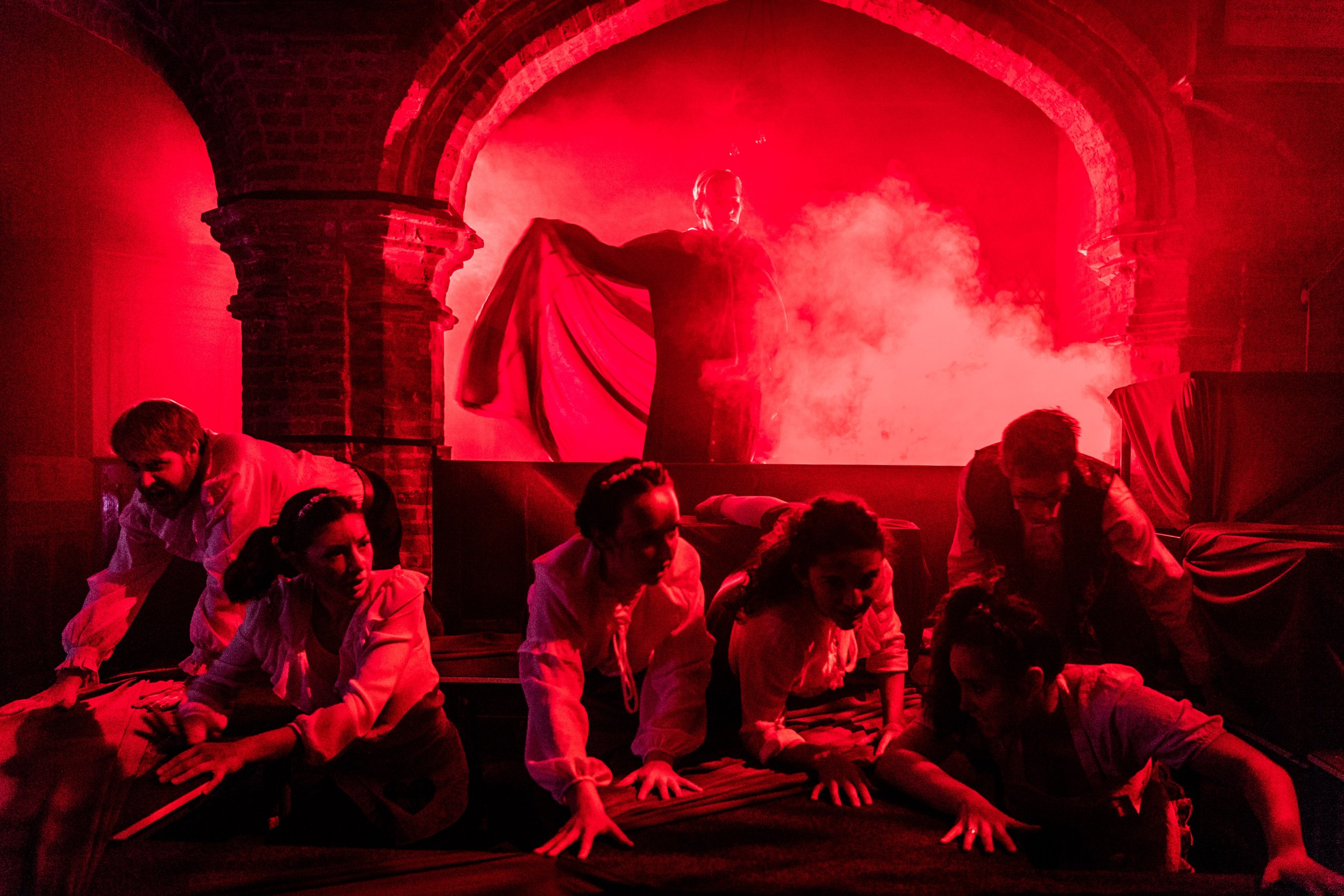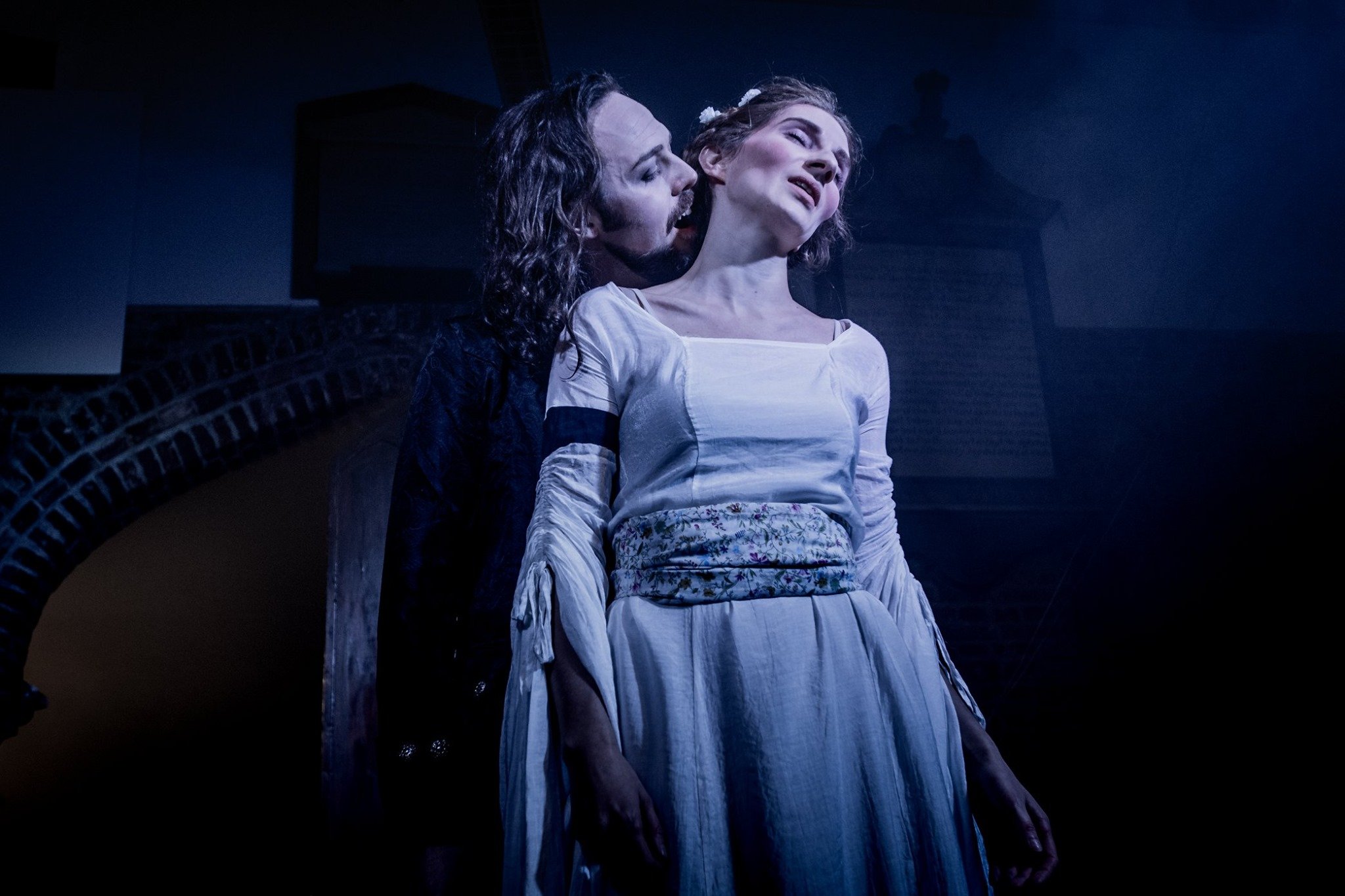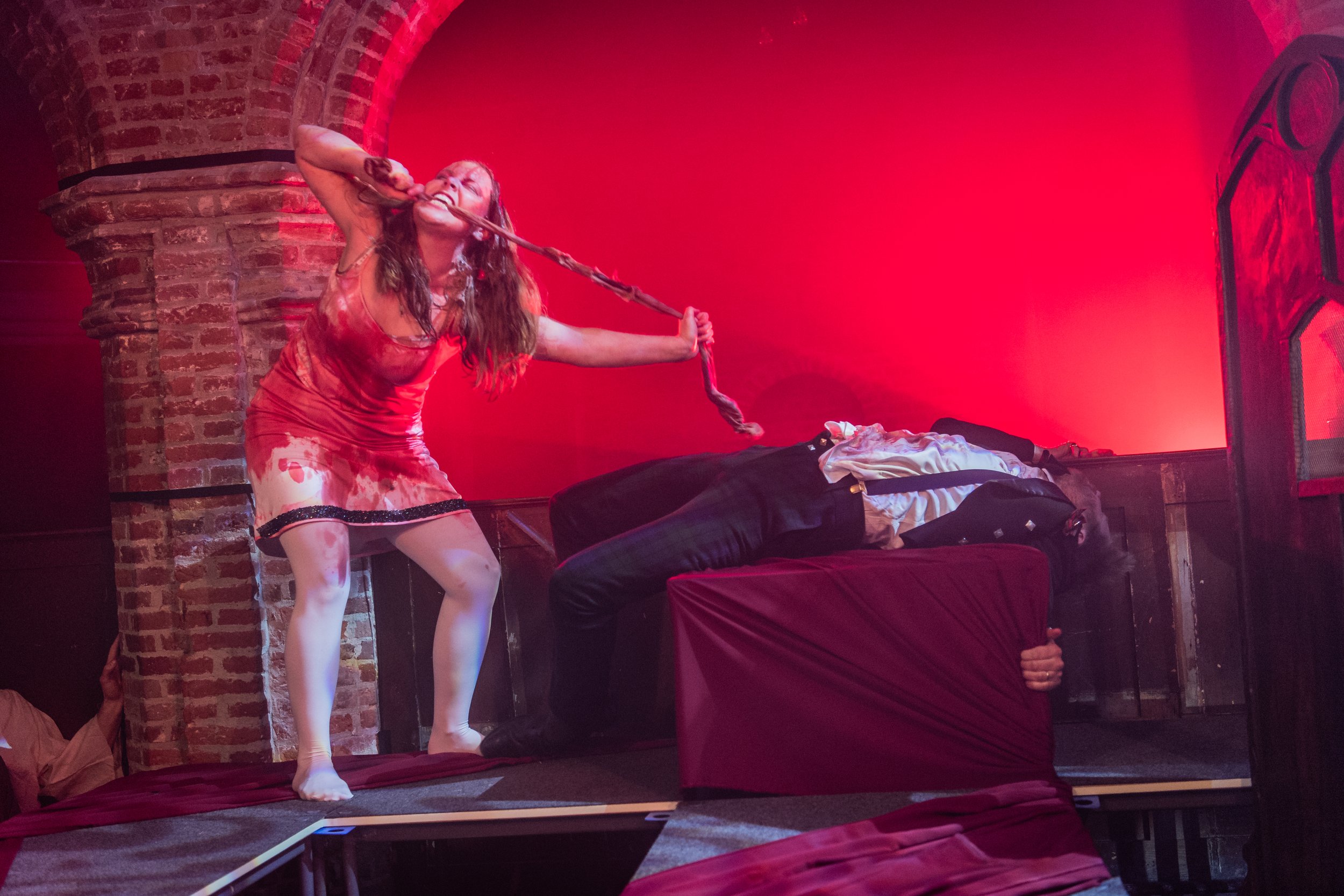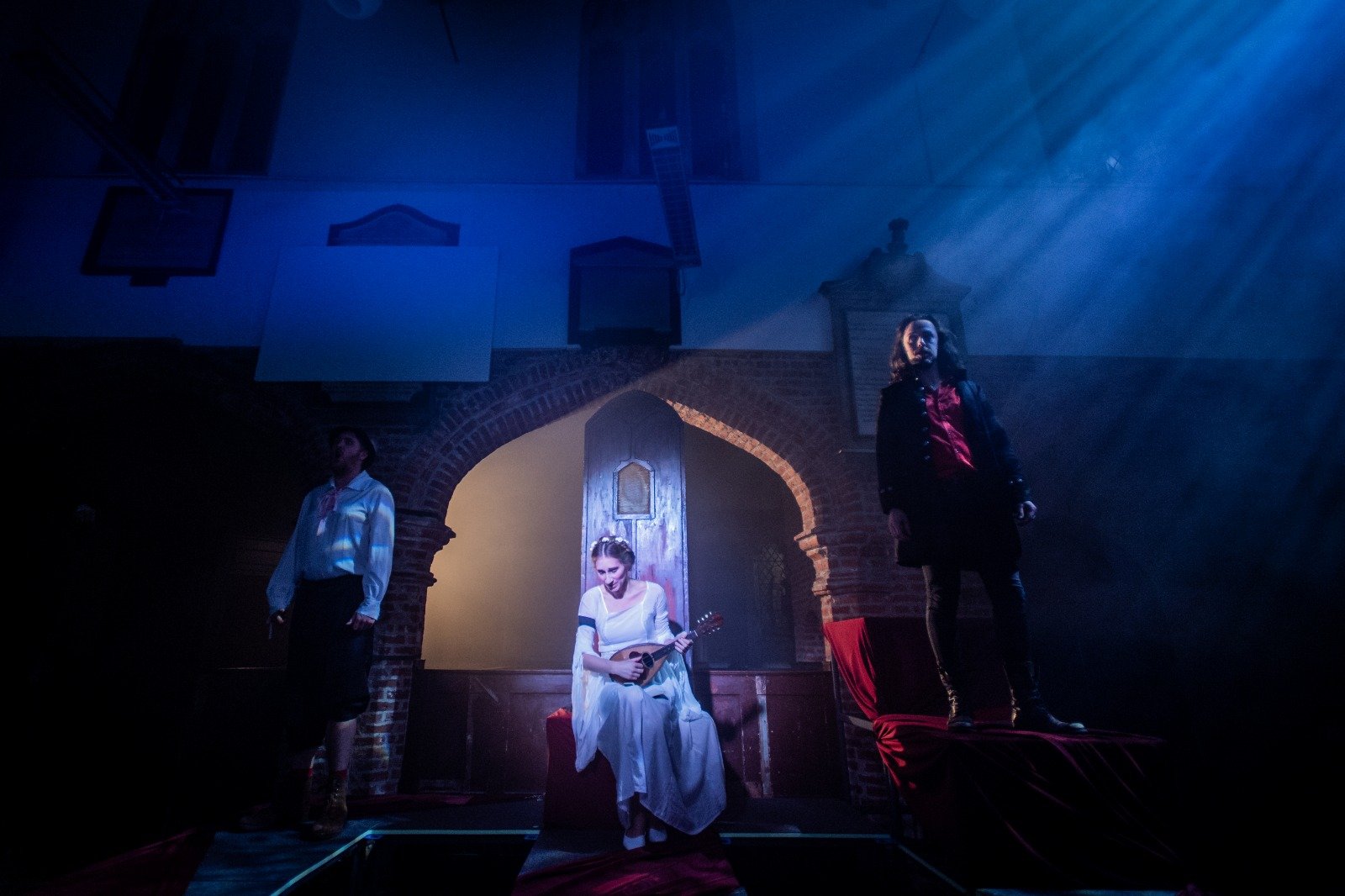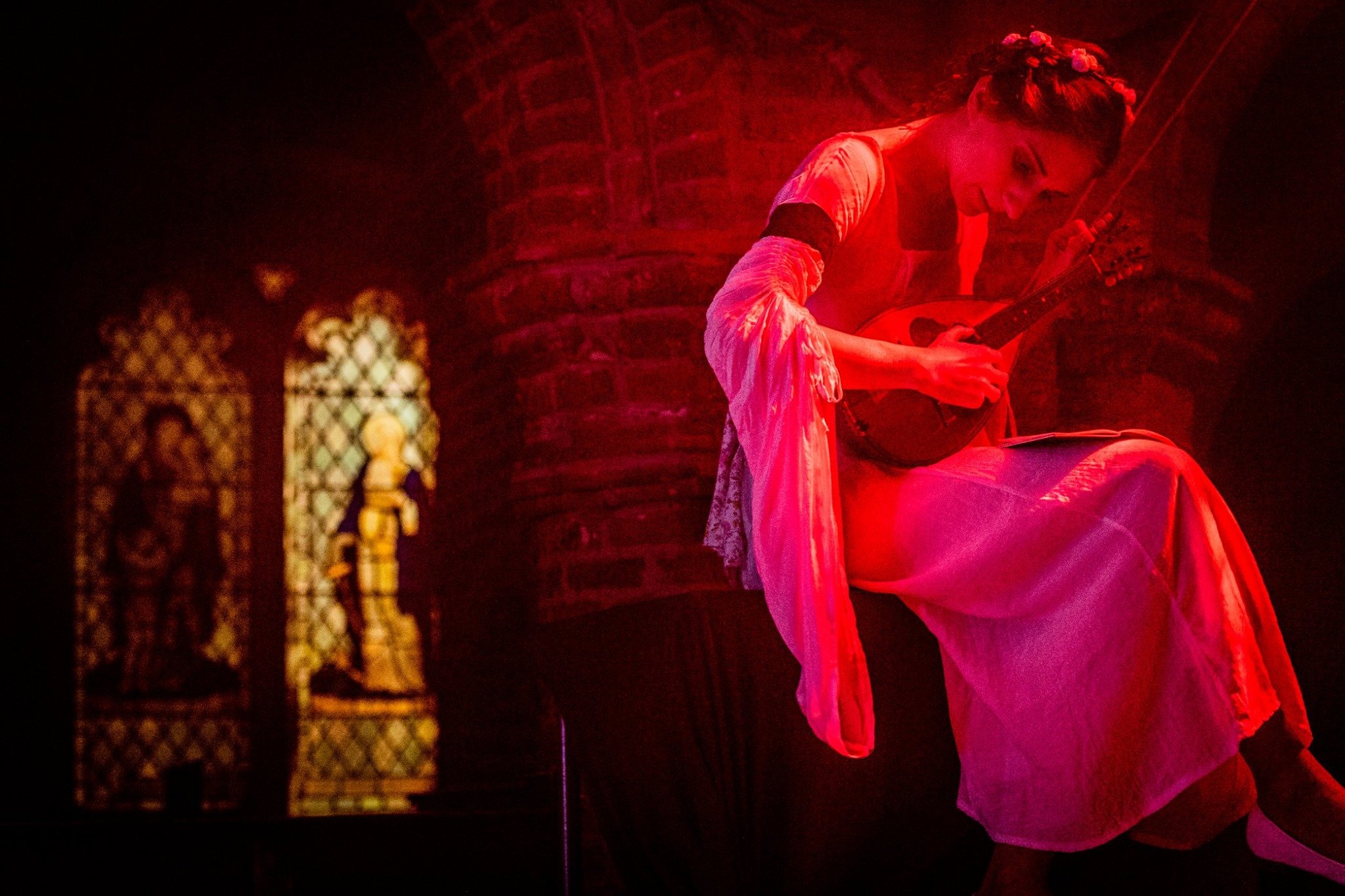Off West End Nominee, Best Opera Production, Gothic Opera
…a feminist re-imagining of a German nineteenth-century opera dealing with issues of consent and desensitization to violence through dark humor…
Der Vampyr was featured in InTune at Radio 3 as well as in ELLE UK and Opera Now
Director Julia Mintzer took admirable steps to impart agency to Ruthwen’s ‘victims’, ultimately shifting autonomy in decision-making to the women...The women’s destiny is their own. -Opera Now
“ “…extremely entertaining, not least the unexpected ending…I thoroughly enjoyed this production.” ”
In Dracula, the victims, once bitten, become vampires themselves, unless someone specifically prevents this via a stake through the heart, decapitation, or other loophole. In Marschner’s opera, however, we don’t know much about anyone’s human-to-vampire transition. We never learn how Ruthwen became a vampire, or what might happen to Janthe and Emmy after their deaths. So it is entirely possible that there is another chapter in the stories of these three women. A chapter in which they all become vampires. A chapter in which they bypass their oppressive circumstances through the most straightforward route possible: by outliving them. In our adaptation of the dialogue, the Vampire Master says: “I cannot promise what eternity will will bring ...but... if the world ever catches up with us, you will be around to celebrate…” Our three heroines cannot know what it will be like to be alive in one hundred, two hundred, or five hundred years, but whatever the future holds, it will surely be better than the lives they are living when we encounter them.
The last decades have seen a wave of retellings of classic works from the perspectives of characters, often female, whose era might not have afforded them a voice: Sunday in the Park with George, Girl with the Pearl Earring, The Other Boleyn Girl, or more recently, The Women of White Chapel at English National Opera. In keeping with this new tradition, I wanted to take the opportunity to imagine the “real story” behind Der Vampyr-- the tell-all, true-crime series we might have seen on late-night television, long after Ruthwen’s case was formally adjourned. What if Marschner’s Der Vampyr were a fictionalized version of a murder case, based on the news coverage, based on the official sherrifs’ report, based on the local officers’ responses, based on the witness accounts? How far might this fictionalized version be from the actual events? In this long chain of storytellers, what facts might have been accidentally lost, or have been culturally impermissible? What motives might the witnesses to these murders not have been willing or able to accept, or even understand, given their cultural context? The original text of this opera asks the audience to root for the antihero as he deceives and then assaults (or attempts to assault) the three female protagonists. Vampire horror is among a number of widely popular genres that still don’t question sexualizing violence against women. In telling the “real story” of Ruthwen’s last day on earth, I wanted to stay faithful to a narrative that fit the original material-- respecting the shape of the opera and it’s creators’ intentions-- while also considering that the agency might not lie where the character’s contemporaries would have assumed. I wanted to allow Janthe, Emmy, and Malwina to reveal the story that Marschner and Wohlbruck might have not been allowed to tell, been too embarrassed to tell, have been censored out of telling, or were simply unable to tell because their cultural context didn’t allow them to consider it.
I wanted to tell the story that Malwina, looking back as a thousand-year-old vampire, might recount to her disciples, finally able to laugh at how hard she had to work to own her own vampire power. So while in 2019, we can look back in our informed hindsight at Ruthwen’s story, who knows what the Vampire Master might say about this in another thousand years?

